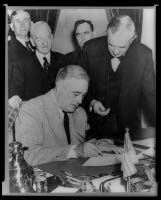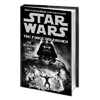Children are swearing already, so why can't Jacqueline Wilson?
Written by Michael Rosen
Originally posted on August 22, 2008
The squeamishness that has forced the word 'twat' out of her novel My Sister Jodie is deaf to both current usage, and to the words children know already
First things first, the word "twat" has an interesting derivation. It's probably linked to the suffix "thwaite" that appears on the end of place-names. Somewhere in the mists of Germanic linguistic time, it had the sense of being a piece of land that had been delineated by humans, cut off from the uncultivated land surrounding it. At some point, this was also used familiarly to describe some or all parts of a woman's part, if you get me. (Yes, I know I'm being euphemistic here).
Feminist criticism could have a ball here on interpreting this metaphorical use as a piece of male ideology whether that's because there's something "cut off" about female genitalia, or that it's a place that is to be ploughed and settled on.
 Then, as with many other sexual parts, male and female, it became a word of insult. And then, in time (and this is crucial for the Jacqueline Wilson case) the word is used without people knowing that it's linked to the sexual part. Robert Browning famously used the word in a poem, clearly not knowing either of these meanings, while Henry Miller used it over and over again in the sexual sense only. Jacqueline has some interesting precedents.
Then, as with many other sexual parts, male and female, it became a word of insult. And then, in time (and this is crucial for the Jacqueline Wilson case) the word is used without people knowing that it's linked to the sexual part. Robert Browning famously used the word in a poem, clearly not knowing either of these meanings, while Henry Miller used it over and over again in the sexual sense only. Jacqueline has some interesting precedents.
Anxiety about the possibility that children will be corrupted if they hear rude words has been around for a long time. Some readers will remember Robert Westall's magnificent The Machine Gunners. This is one of the best "war" novels for children, exploring the underground world of boys in the space left them by absent parents. There are parallels in world fiction, including one by Nobel prize-winning Kenzaburo Oe's Nip the Buds, Shoot the Kids and I think Westall's matches them all for power and story. However, a good deal of critical noise was made over the fact that Westall dared to use the word "bloody" in the book - several times!
To finish this article, click here.












